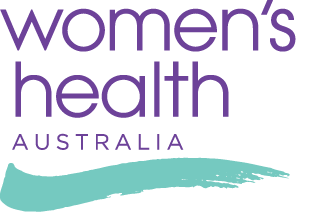National collections
 Record linkage
Record linkage
ALSWH holds linked data from a number of national administrative health record collections (refer to linked data sources for a list of the collection names and organisations involved). Linkage for all national collections is conducted annually by the Australian Institute of Health and Welfare (AIHW) Data Linkage Unit. ALSWH participants are now linked through their Medicare PINs to AIHW’s enduring linkage spine. Therefore, all national linkages are now deterministic, ensuring highly accurate and comprehensive record matching.
See “ALSWH coverage (collection x cohort)” in the list of resources for details of ALSWH national holdings.
![]() You should consider the scope of each collection, and also note that ALSWH only receives a selection of the variables. Refer to the ALSWH Linked Data Variable Request Form for details of all collections.
You should consider the scope of each collection, and also note that ALSWH only receives a selection of the variables. Refer to the ALSWH Linked Data Variable Request Form for details of all collections.
 Medicare
Medicare
The AIHW conducts record linkage and extraction for Medicare Benefits Schedule (MBS) and Pharmaceutical Benefits Scheme (PBS) for all ALSWH cohorts. Late in 2023 we will add the Australian Immunisation Register (AIR), also administered by Medicare.
Matching is deterministic (AIHW holding the concordance file between ALSWH participant numbers and Medicare PINs.) PBS data contain Department of Veteran’s Affairs (DVA) items, if they exist. MBS DVA items (Repatriation-MBS) are provided as separate datasets (applicable to the the 1921-26 and 1946-51 cohorts only; see more under ‘DVA data’, below).
Data are updated annually, in the third quarter; with records to the end of the second quarter available.
 Cancer
Cancer
All ALSWH cohorts are now linked deterministically, using the Medicare PINs, to the Australian Cancer Database (ACD; the national minimum cancer dataset at AIHW, which incorporates data from all State Registries). Non-melanotic skin cancers are excluded.
Data are updated annually, around August. Earliest records are available for most states are from 1982, and the most recent are 4 years old at the time of supply to ALSWH. The time-lag in Australian cancer data is consistent with that of similar nations and ensures high quality data. Data are sourced from each state registry, and it can take considerable time for registries to receive all relevant information from notifiers (mainly hospitals and pathology laboratories) before providing the data to AIHW. AIHW then performs its own quality checks and standardising procedures, as well as linking it to the National Death Index and removing duplicates (cases registered in more than one state).
 Aged care
Aged care
For the two oldest ALSWH cohorts (1921-26 and 1941-46) aged care data are sourced annually from the AIHW’s National Aged Care Data Clearinghouse. These datasets are complex and include activity data for state and federal residential aged care programs. Data for Department of Veterans’ Affairs aged care programs are linked separately.
 DVA data
DVA data
ALSWH holds Repatriation-MBS and Aged Care Program data from Department of Veterans’ Affairs, as some women in the two oldest cohorts are DVA card holders. These records are provided to ensure complete coverage of service use. The number of ALSWH participants currently identified as DVA clients is 3,395 in the 1921-26 cohort, and 144 in the 1946-51 cohort. Note that DVA clients may also use non-DVA aged care services.
DVA data were last received in 2021.
PLEASE NOTE that if you intend to conduct analyses which distinguish DVA clients or DVA services, your project will require specific DDVA HREC approval, and must also have a DVA sponsor .
 Deaths
Deaths
AIHW also provide updates from the National Death Index (NDI). Please request the Participant Status file for deaths confirmed by the NDI . The available variables are: ‘deathyear’, ‘deathmonth’ and ‘deathdatestatus’=1 (‘deathdatestatus’ >1 indicate that the information came from sources other than NDI). BDI data are updated annually, usually in the second quarter.
Full date (DD/MM/YYYY) and Cause of Death may also be requested, with additional justification. Please note that:
- For some dates of death, the cause will be missing. There is a time lag of approximately one year from when we receive Date of Death, to receiving Cause of Death. However, there may be additional delays in receiving Cause of Death for cases which undergo coronial review.
- The Cause of Death file has the primary or underlying cause and up to 14 additional causes. Deaths occurring in and after 1997 are coded according to ICD10; previous years use ICD-9.
- Deaths occurring overseas are not included in the NDI, however, fact of death may appear on the ALSWH Participant Status file, if informed by other sources.
Mothers and their Children’s Health (MatCH) Substudy
MatCH survey data have been linked with children’s educational records. Read more here.

